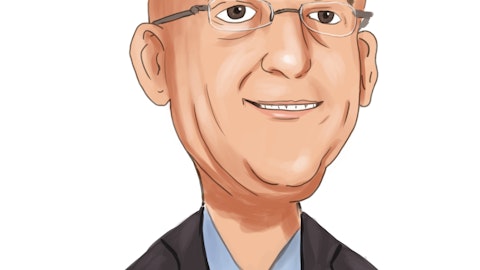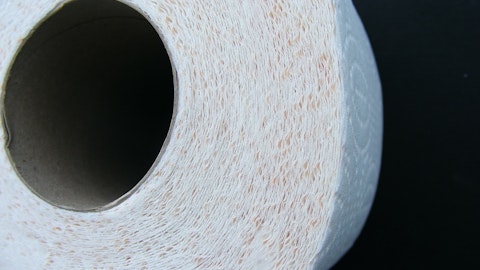And so that tends to be where we first focus on capital allocation. It doesn’t mean that we wouldn’t buy stock back, but certainly, as long as there is good opportunities to acquire companies out there, that’s our first priority and focus.
Aditya Madan: Got it. Makes sense. Good luck in the homestretch here guys.
Jeffrey Powell: Thank you.
Michael McKenney: Thank you.
Operator: One moment for our next question. Our next question comes from John Franzreb with Sidoti and Company. Your line is open.
John Franzreb: Good morning, guys, and thanks for taking the questions. I’d like to circle back to what you said about the balers, and maybe a little bit more discussion on the whole recycling market. Are you seeing differences in demand on a regional basis or not?
Jeffrey Powell: Well, I think North America has been particularly strong. But we’ve also had good — I would say, really over the last several quarters, maybe year and a half or so, Mike, good — in Europe, in fact, good. There’s been a lot of consolidation into larger and larger recycling facilities in Europe and our machines in Europe are well suited to very large multi-stream machines that are well suited for these big MRFs, these big recycling centers, we are recycling everything. And so we’ve had good success there. That’s a product that gets a fair amount of development and R&D work from an investment standpoint. And we’ve introduced some new products that have been quite successful in Europe. And also we’ve brought that product to the US.
The acquisition of Balemaster really has helped us start to penetrate the US market with our European technology because we now have the engineering and the service network in America that our customers look for here. And so that’s helped us a lot too. So we started to have some good success with that. So it’s — I would say it’s broadly based, but in particular, North America, our Balemaster, which makes machines that go into the packaging industry, the distribution centers, the corrugators, they’ve been quite busy with a lot of demand.
John Franzreb: And in Asia there was once a major migration going there. Is that process certainly over post-COVID? Where did that end up relative to your expectations?
Jeffrey Powell: You’re talking about on the balers side or other aspects of the business?
John Franzreb: Other aspects of the recycling business, other aspects of that.
Jeffrey Powell: So, on the stock prep side, which is the technology that recycles packaging and paper, they started to build these facilities, and I think you’re referring to these countries in Southeast Asia that really ring China to get around the waste import ban. Yes, I would say that had, I would say, mixed success. As we somewhat expected, a lot of those companies — or those countries said, well, if you don’t want the waste coming into your country, why would you want it coming into ours? And some of the economics didn’t work out. And so I would say that’s had mix success. They’ve come to the US and took over facilities, re-fab facilities here, and that’s where they’re getting some of the fiber, but there’s also an emerging kind of recycled fiber market out there that they’re able to just buy from and they’re doing that too.
And, of course, they are also putting in some mechanical pulp mills into China to generate some fiber there. But the — I would say that the — your question around where we are in that cycle on those countries that ring China, I would say that’s slowed down quite a bit and probably would not be a major growth area going forward.
John Franzreb: Perfect. That’s exactly what I’m looking for.
Jeffrey Powell: At least not going in China. It is a growth area for Southeast Asia because of course those countries are still growing well. And so, we are booking orders in those countries for a product that will stay in those countries. But as far as they being a fiber source for Mainland China, I think that’s probably not going to be — it’s not going to be a major market.


